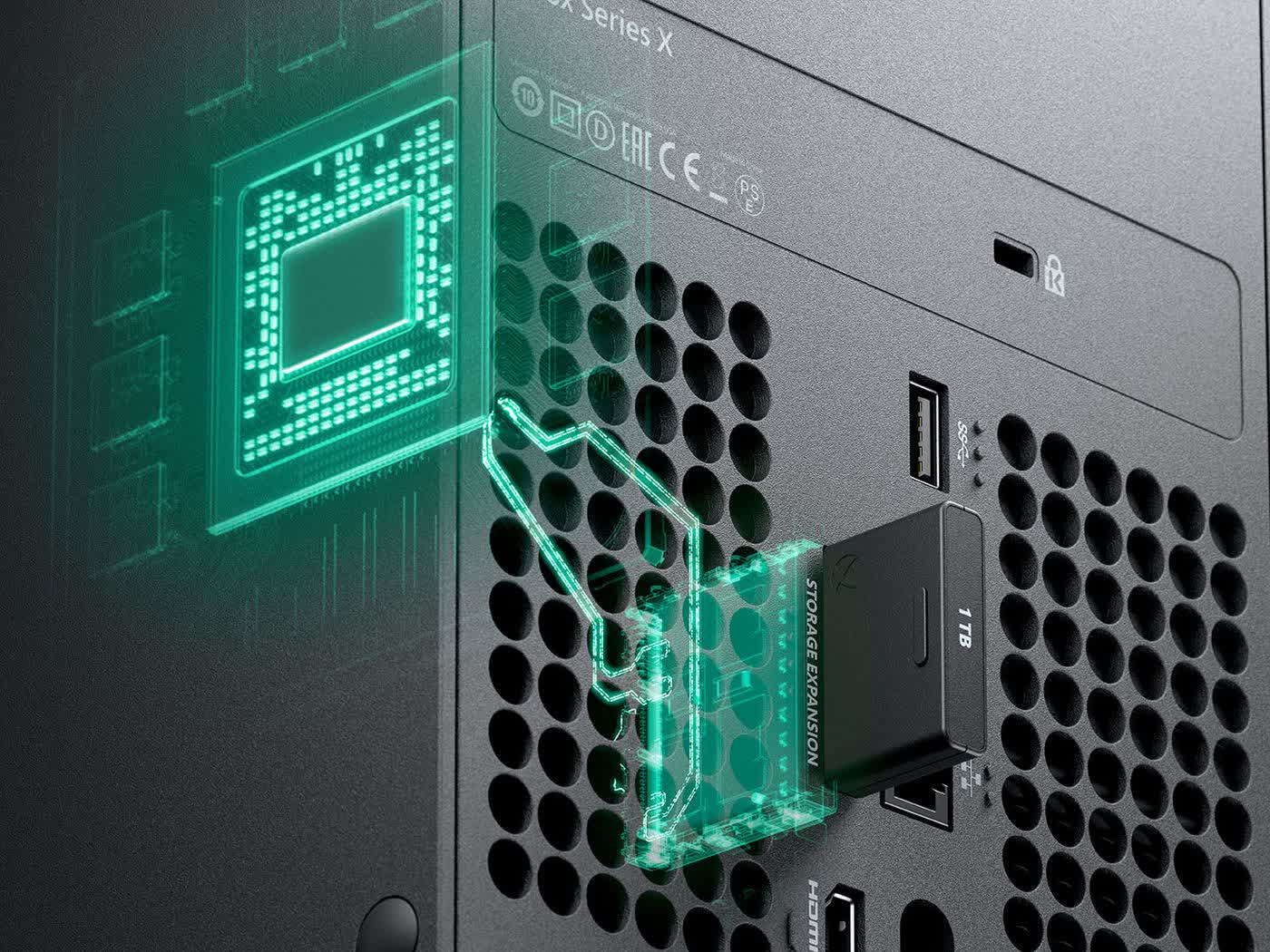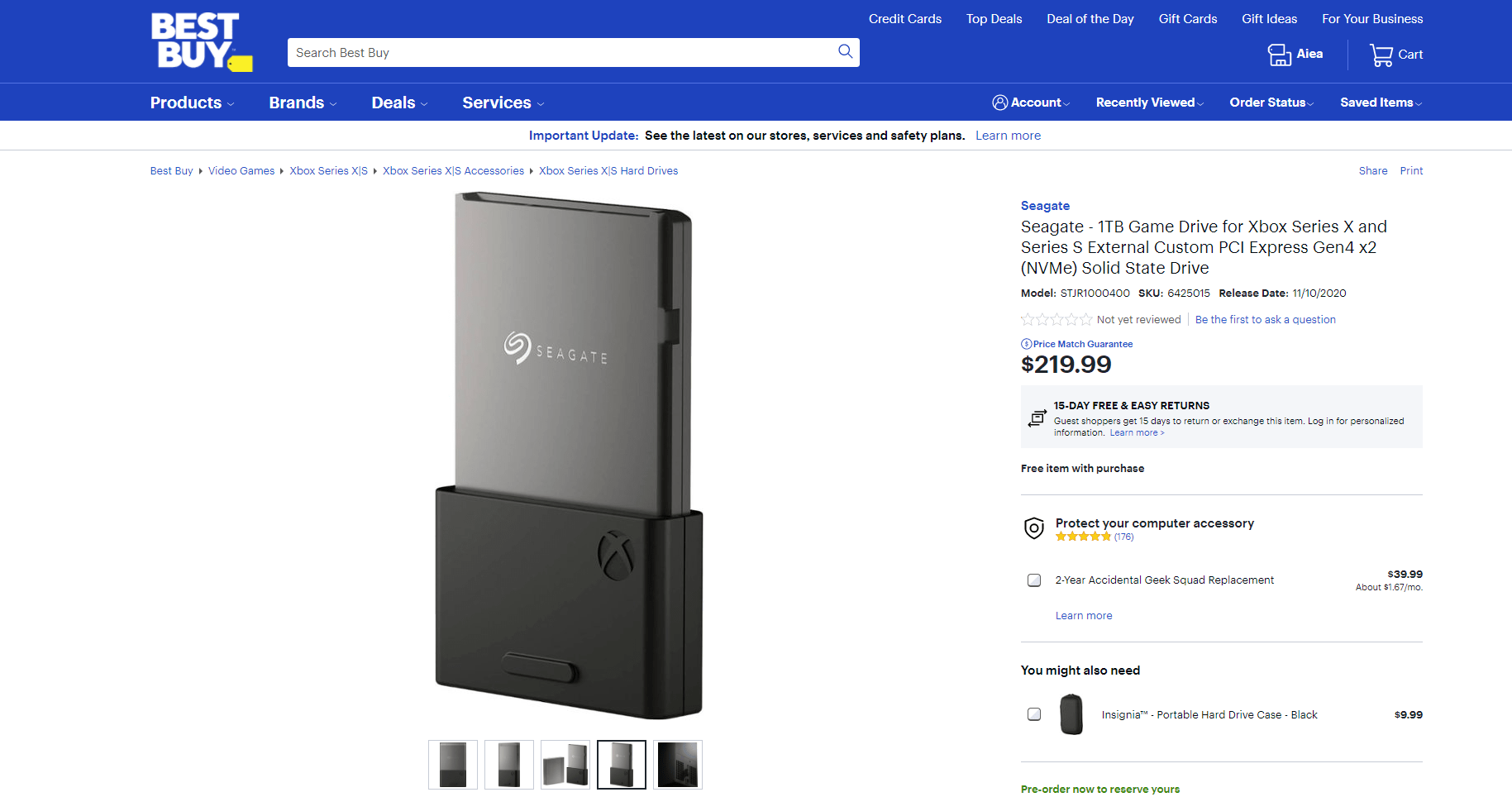Why it matters: While Sony and Microsoft are poised to offer next-gen gaming experiences with their respective consoles, both companies' superfast custom SSDs - 825GB for the PS5, 1TB for the Series X, and a paltry 512GB for the Series S - won't stand a chance against the install sizes of modern and upcoming AAA titles, as well as massive game libraries of today's console players. Both Sony and Microsoft know this, which is why they've included an additional NVMe slot and multiple USB ports for storage expansion on their consoles. While Sony's certified third-party drives for the PS5 are yet to appear, we now know what Seagate's 1TB expansion card, which it revealed earlier this year, will cost buyers of the Xbox Series S | X.

Microsoft's Velocity Architecture on the Xbox Series S | X will load and switch games in a matter of seconds, thanks in part to its custom NVMe SSD capable of up to 2.4GB/s of raw throughput. In terms of storage, however, players with huge game libraries might want to get Seagate's Storage Expansion Card, especially if they desire the same performance as their console's internal drive and don't want to get bogged down by conventional SATA-based external HDDs.
Unlike Sony, which will certify off-the-shelf NVMe drives for its PS5, Microsoft will offer proprietary storage cards for expansion, with Seagate being one of the first partners for the Xbox Series S | X. As expected, this storage add-on won't come cheap - something confirmed by Best Buy, which is now taking pre-orders.
At $219.99, Seagate's 1TB expansion card will cost more than half the price of the $299 Series S, whose 512GB of in-built storage will likely need it sooner than the $499 1TB Series X. The listing also reveals the release date for the card that coincides with the Xbox Series S | X launch date of November 10, 2020. Microsoft also tells The Verge that it'll have more card manufacturers and storage capacities in the future, but for now, early adopters will just have to get this expensive 1TB option.
With developers taking advantage of the Xbox/PS5 architecture and SSDs for reducing their game sizes, such as not having duplicate files/assets, gamers should still see sizable installs for some time until highly optimized titles arrive later in the consoles' lifecycle. Expect storage add-ons to be just as, if not more, popular than a secondary controller for next-gen consoles.
https://www.techspot.com/news/86866-best-buy-reveals-what-itll-cost-expand-xbox.html
